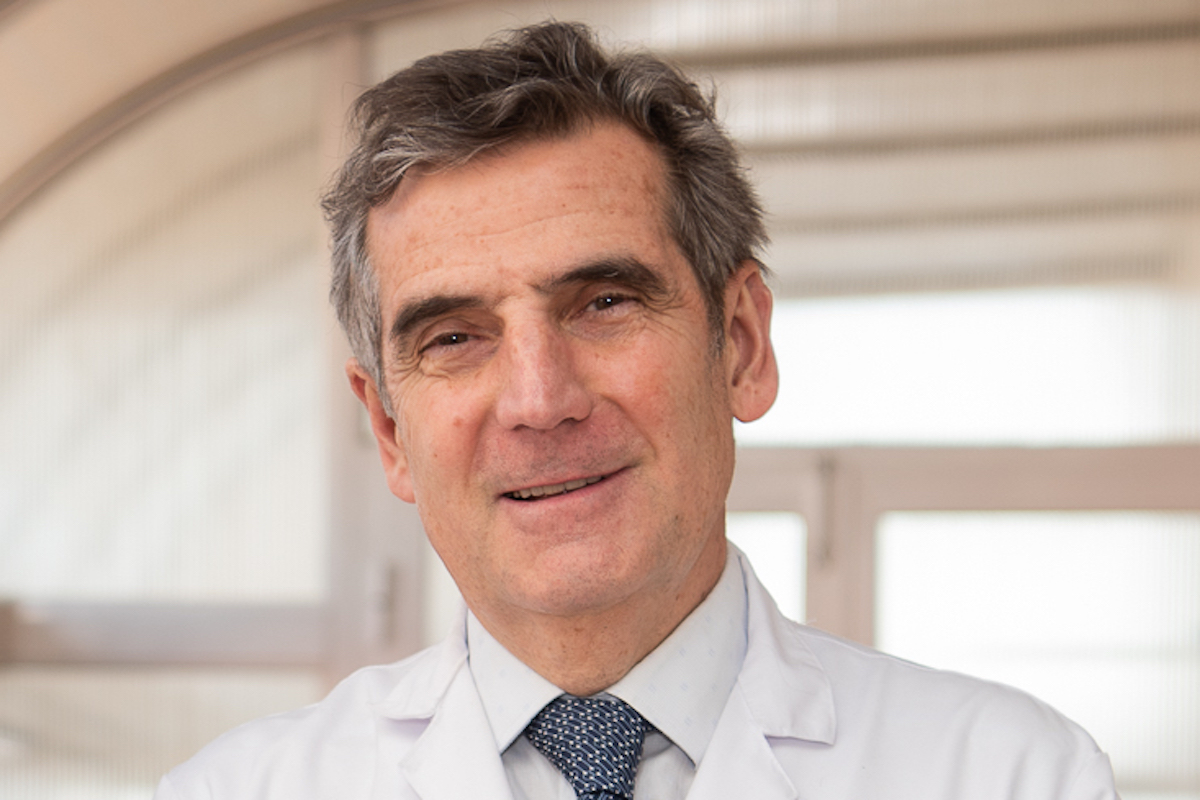Managing the Hospital Clínic Barcelona in times of crisis

Dr. Josep Maria Campistol, General Director of the Hospital Clínic Barcelona
A nephrologist with more than 36 years’ experience at the Clínic Barcelona: 10 years as head of nephrology and urology, two years as medical director, and since 2016, general director of the hospital. Dr. Josep M. Campistol has been in the front line dealing with the challenges of managing one of the main hospitals in Spain throughout the Covid-19 health crisis.
Uncertainty, tension, difficulties, staff under pressure, and initial ignorance of the nature of the disease... this is how the doctor describes the months of March and April this year. From mid-March up to the beginning of May, the Clínic treated more than 5,000 Covid-19 patients and admitted 2,500 (500 of those admitted were moved to Intensive Care). Since the last weeks of April, admissions for Covid-19 have gone down day by day.
From mid-March onwards, the Clinic used a hotel, the Catalonia Plaza to manage the avalanche of patients arriving at the hospital and to increase the number of beds for patients suffering from Covid-19. In addition, the hospital was gradually adapted: care for surgical and medical patients with other pathologies was reduced to a minimum and 90% of hospital capacity was given over to Covid-19 patients. The number of intensive care beds jumped from 50 to 170 at the peak of the pandemic. It was a highly complex exercise but Dr. Campistol says that, although they were "under tremendous pressure for at least 2-3 weeks," they were never completely overwhelmed.
"From mid-March, El Clínic had the Catalonia Plaza Hotel available to increase its bed capacity for Covid-19 patients"
The situation changed dramatically at the beginning of May, with a major decrease in emergency cases, dropping from 130 per day to 4 to 6. This made it possible to gradually return to caring for patients with other pathologies and to try to catch up with the surgery not performed during the pandemic. The doctor is cautiously optimistic about how the pandemic will evolve in Barcelona during the coming summer months: he believes that the high temperatures will cause the virus to weaken and that there will be hardly any new infections. The doctor is cautious, however. He does not know what will happen from October-November, when the cold returns.
Benchmark hospitals
Barcelona is well-known for its network of high quality, internationally-respected hospitals. Catalonia has 103 hospitals employing more than 93,000 healthcare professionals. The Clínic Barcelona is one of the world's leading healthcare centers (according to a Newsweek magazine ranking) and is one of the best-known hospitals in Spain. With more than 100 years’ history, the hospital is a public consortium made up of the Government of Catalonia (CatSalut) and the University of Barcelona.
It has a long tradition in research that is conducted via the August Pi i Sunyer Biomedical Research Institute (IDIBAPS). The IDIBAPS center produces the highest volume of research in Spain and is among the top 25 worldwide. Management of its projects is handled through the Fundación Clínic para la Investigación Biomédica.
In favor of public-private collaboration in health
Dr. Campistol is in favor of the public-private partnership model, in all sectors, including health. According to him, Barcelona has "first class" healthcare that requires significant investment: there are plenty of opportunities for public-private partnership, especially with the pharmaceutical and technology industries. One example of public-private collaboration during the Covid-19 health crisis has been the collaboration with the automotive company SEAT in the manufacture of emergency respirators.







